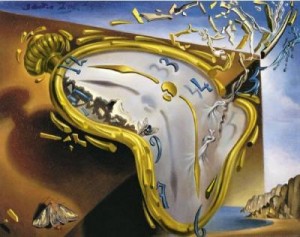The secret about the secret? It doesn’t work.
Now before you light the torches and dust off the pitchforks, let me say I’m a big believer in visualization. Having a crystal-clear vision of the goal, outcome, or future, and being able to see the path that leads there is very powerful. So it has been interesting to read what the research has to say about visualization and how it impacts our performance and results (for better or worse).
Imagining goals as accomplished gets worse results
We are visual beings. Our brains are overwhelmingly devoted to visual processing. Visualization is a key component of countless disciplines, practices, and programs, but it turns out that people who engage in certain types of visualization are less successful and get worse results than people who don’t.
I didn’t want to believe it either, but Richard Wiseman in his book “59 Seconds”, details some of the many convincing studies that make this conclusion hard to escape.
Whether it was students visualizing getting an “A” in class, to workers visualizing more money and a promotion, to women visualizing weight loss, people turned in poorer performance and achieved less desirable outcomes when envisioning their goal on a regular basis.
Visualize Being Unmotivated and Unprepared
The students didn’t study as much and got lesser grades, the job seekers didn’t submit as many resumes, advance as far, and were paid less money, and the women lost fewer pounds (26 to be exact!).
It doesn’t appear than anyone completely understands why this is true. We may feel that by visualizing, we’ve already done the work and that may take our focus off the goal. We may not be prepared for the difficulties and obstacles that lie between our goal and us. Whatever forces are at play, they seem to provide a very powerful drag on our results.
Visualization That Does Work
Don’t despair! Luckily, there is visualization that does work. Specifically, by having (visualizing) a clear goal and seeing yourself taking the steps and doing the work needed to reach the goal you significantly improve your chances and outcomes.
By seeing yourself performing the necessary tasks your mind and body are rehearsing and gaining confidence. Dr. Maxwell Maltz in his classic book “Psycho-Cybernetics” related a visualization study done with dart-throwers. The group that only visualized throwing darts for two weeks improved their game almost as much as the group that actually practiced throwing every day. The key here seems to be that they didn’t visualize winning at darts or having a particular score, but actually mentally practicing throwing darts.
The research pointed to another apparent advantage that came from visualizing the benefits of achieving your goal rather than the goal itself. For example, instead of visualizing “not smoking”, you would visualize yourself being healthier, with more energy, and saving money in the process.
So what are your thoughts? Do you use visualization? How? Does it help? Please share!






